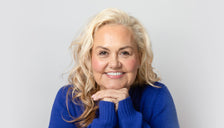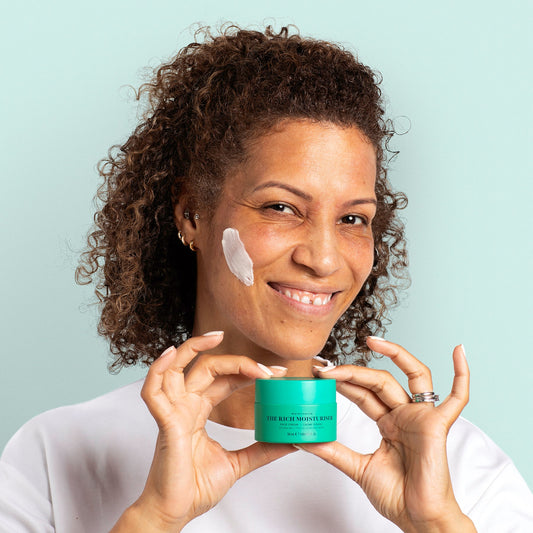By Ultra Sun

Your SPF Questions Answered
Choosing the right SPF is really important and a number of factors should be taken into account – your skin type, the sun conditions and the amount of time you plan to be out. Skin that is not used to the sun is less able to protect itself so a higher SPF should be chosen. Under the influence of UV rays, the skin begins to thicken and starts producing melanin. This process can take 10-20 days, so use extra protection while your skin is adjusting to the sun. Be aware that there’s a difference between SPF 50 and SPF 50+. An SPF 50 is tested to be exactly that but a 50+ must achieve at least an SPF 60 to get that all important "+" sign.
How should I choose which SPF is the best for me?
Choosing the right SPF is really important and a number of factors should be taken into account – your skin type, the sun conditions and the amount of time you plan to be out. Skin that is not used to the sun is less able to protect itself so a higher SPF should be chosen. Under the influence of UV rays, the skin begins to thicken and starts producing melanin. This process can take 10-20 days, so use extra protection while your skin is adjusting to the sun. Be aware that there’s a difference between SPF 50 and SPF 50+. An SPF 50 is tested to be exactly that but a 50+ must achieve at least an SPF 60 to get that all important "+" sign.
What is the difference between UVA and UVB?
UVA (ageing, DNA and cell changing) penetrates below the skin’s surface and requires a high-level UVA filter to absorb the UV rays away from the skin. UVB (burning) causes the ‘sunburn’ we may see after overexposure. UVB is measured by SPF (Sun Protection Factor). The SPF rating system was developed back in 1962 by Franz Greiter to measure the capacity of a sunscreen to block UVB radiation. The current SPF rating system applies to UVB rays only. Ultrasun goes further and protects against the full light spectrum. Infrared-A: Infrared-A rays penetrate the epidermis and dermis and can lead to the formation of free radicals. Antioxidants are the key to infrared-A and DNA defence.
How much sunscreen do I need to apply?
Apply liberally to all exposed, or potentially exposed, parts of the body. The official guidelines given by Colipa (Association of European Cosmetic Industry) are 2mg/cm2. As a rule of thumb, use a teaspoon of sunscreen for each arm, leg, front, back and face (including neck, and ears). For a 1 week holiday we recommend 100ml for a child and 150ml for an adult.
I’m working from home and don’t go outside during the day - do I still need to wear SPF?
Simply put – yes because of UVA rays. UVA rays are a year round skin damager, penetrating cloud and glass and impacting cumulatively beneath the skin’s surface. Think UV “A” for ageing. According to the World Health Organisation, up to 90% of the visible changes commonly attributed to ageing are caused by sun exposure. Sun protection should be very much part of a daily skincare routine and anyone serious about their skincare will know that UVA & UVB protection is a daily core component. No serum or moisturisers can reverse UV damage. All Ultrasun Face products multi-task, delivering a lightweight under make up formula that often rivals and replaces BB and CC creams, but also giving enhanced anti-ageing, anti-pollution, skin radiance and smoothing benefits, alongside the crucial high SPF and UVA filter as standard.
My moisturiser/foundation/BB cream has SPF included, do I need to apply SPF as a separate step?
A number of moisturisers and make up brands contain an SPF within them. However, these tend not to be water-resistant and, by the very nature of their intended use, are applied a lot more thinly and therefore are often not providing the same level of protection as advertised. Also they tend to miss the all-important UVA protection. Whether your make up contains an SPF or not, it is important that you choose a high-quality sun protection product that contains photo-stable UV filters (this means that the filter is not broken down by the energy of UV rays). Ideally, individuals should choose sun protection products for their face that contain SPF30 or above (anything less than this only offers low protection) and choose ones with broad spectrum protection to prevent damage from both UVA and UVB rays.
I have dark skin, I don’t need to wear SPF.
It’s a myth that darker skin tones do not need sunscreen. Black skin may be ahead of the game with a higher natural SPF, but that is not enough protection. A broad-spectrum sunscreen of SPF30 and above is essential. Darker skin can still suffer burns from being unprotected in the sun, which is an indicator that damage including cell mutation is happening further down in the dermal layers. In addition, UV rays are chief instigators when it comes to uneven skin tone and hyper-pigmentation as it sends the melanin producing cells – the melanocytes – into a production overdrive which causes patchy, uneven blemished skin tone.
A high UVA % filter preferably of over 90% and SPF (UVB) of at least 30 is equally crucial for darker skin tones, both for the prevention of skin cancer and as part of preventing skin damage as part of a regular skin care routine. UVA’s link to the cause and worsening of hyper- pigmentation is well established and ensuring that protection is a daily skincare step is the best prevention tool. Ultrasun has sun protection products for all skin types that deliver high, broad spectrum protection leaving none of the chalky residue that those with darker skin tones are understandably keen to avoid.
My skin is sensitive, I don’t want to break out from a greasy product like SPF
Ultrasun is made with sensitive skin in mind our formulas are fragrance free, hypoallergenic, non-comedogenic and contain vitamin E, Squalane and GSP-T (Grape Seed Extract) for additional moisture.
Is SPF really safe? I’ve seen several brands recall their SPF products recently, how do I know who to trust?
It’s important to know your ingredients and what to look out for, we have broken down the key things that should be factored in when considering what sunscreen to purchase:
Formula: Ingredients are lost very quickly through evaporation, trans epidermal water loss or even by adding other products on top. We need key ingredients that skin must be able to access and absorb to get results. That’s all about the formulation. At Ultrasun we use Lamellar structure technology. Lamellar gel structures have a high affinity to the natural structure of ceramides found in the skin which allows them to bind and deliver deep below the skin’s surface, mimicking the skin’s own compatibility structure to avoid irritation. Lamellar technology is composed of fine, alternating layers that form an even bond with the skin. This ‘suit of armour’ not only protects ingredients but it supports the penetration of active ingredients into the skin. This means that high-quality UVA and UVB filters alongside skin boosting ingredients like Ectoin and hexoresorcinol remain within the skin’s layers throughout the day delivering them in a way that is sympathetic to the skin’s own system.
The exact percentage of UVA filter: The SPF number only measures UVB rays which burn the surface of the skin, but UVA rays have a long term impact below the skin’s surface increasing the risk of skin cancer and causing skin damage and ageing. There are many systems to measure UVA filter levels and the simplest is the %. All Ultrasun products clearly show the % of UVA filter on the packaging so it’s easy to navigate and have a very high UVA filter of over 85%, against an EU standard of 33%.
Shelf Life: An Asda survey revealed that 57% of Brits are wearing out of date sunscreen. Check your product for shelf life, the average is 6-12 months. All Ultrasun sun protections have a shelf life of 2 years AFTER opening so can be used for more than one season and are great value for money making it possible to buy different products at different SPFs and formulas to “cocktail” protection knowing it’s good for next season. How long a sun cream lasts is above all about efficacy and ability to protect to the level indicated so it’s incredibly important you don’t wear out of date sunscreen.
About Ultrasun
Created in Switzerland, with over 3 decades of professional UV protection expertise, Ultrasun is your solution for long-lasting, broad-spectrum protection from the entire light spectrum. This includes damaging UVA, UVB, Blue Light and Infrared-A rays, which are the biggest cause of premature skin ageing. Incredibly lightweight and water-resistant, Ultrasun has innovative facial
formulations that act as a perfect primer for make-up, as well as specific products for babies and sensitive skins or clear gels all of which ensure skin is protected all day.
Ultrasun is the only company worldwide to use lamellar technology in the formulation of sun protection products. This innovative technology ensures product is locked within the top layer of your skin and gives an overlap of coverage that guarantees complete and even protection from the sun’s harmful rays. Lamellar protection allows the filters to protect for longer and move effectively even after water exposure.
Ultrasun is the first sun protection brand worldwide to be awarded the
BASF EcoSun Pass, the ultimate test of environmental impact for sun protection products, making them both reef friendly and ocean safe as well as not interrupting our own endocrine systems.
Accredited with the Swiss Allergy Seal of Quality, and Dermatologist recommended, Ultrasun products are hypoallergenic with no emulsifiers or perfume, making them suitable for children and those with sensitive skin. Ultrasun’s fast-absorbing lamellar formulas suit all skin types and skin tones, with product choices from clear gels to added skincare actives to target areas of concern such as pigmentation.
With a superior shelf life of two years after opening you can cocktail your products to suit the needs of your lifestyle and your skin.

























